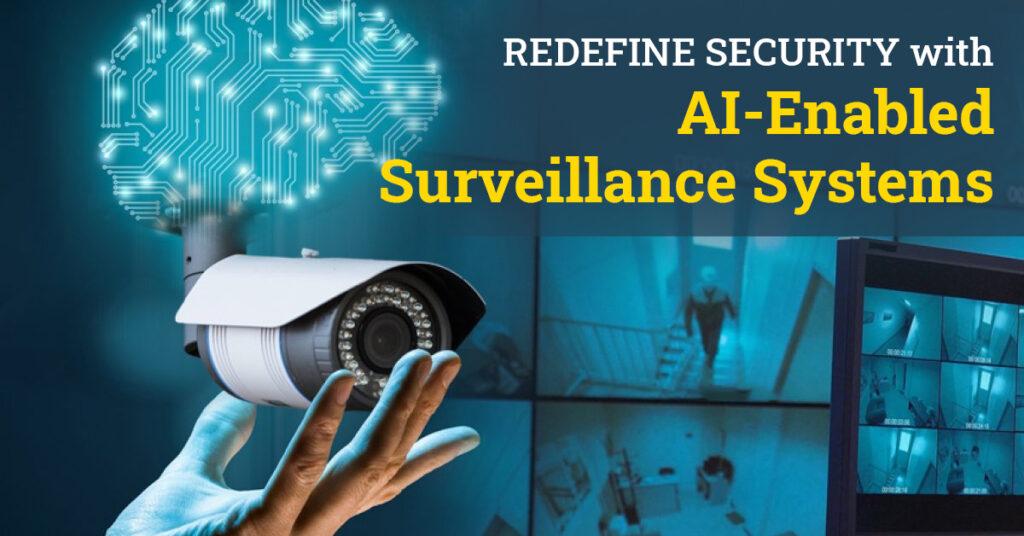The global AI in video surveillance market is expected to be valued at USD 5.6 billion in 2023 and is projected to reach USD 16.3 billion by 2028; it is expected to grow at a CAGR of 23.7% from 2023 to 2028.
In 2023, an increasing number of manufacturers are anticipated to include AI-based analytics as a standard feature in cameras and video management systems (VMS). As security cameras are now prevalent in nearly every environment, the task of manually monitoring them all has become exceedingly challenging for human operators. By incorporating AI-based analytics, security professionals gain valuable tools to effectively process and manage the vast amount of images and data they encounter.
Download PDF Brochure:
https://www.marketsandmarkets.com/pdfdownloadNew.asp?id=84216922
AI in video surveillance for hardware is expected to hold the highest market share during the forecast period
The market of the hardware segment is attributed to the fact that hardware makes for more than 60% of the total cost of an AI-based video surveillance system. There is also an increasing use of cameras deployed worldwide due to rising security concerns across multiple verticals. The industry shift toward IP cameras has led to many hardware-based innovations that provide better low-light performance, object tracking, and in-built security. Technological advancements have resulted in highly specialized surveillance cameras that can be programmed to zoom in and scan items, such as harmful equipment. These factors are driving the market for AI in video surveillance hardware market.
Based on deployment mode, the cloud-based market for AI in video surveillance to hold the highest CAGR during the forecast period
Cloud-based AI in video surveillance is poised to become increasingly popular in the future due to its numerous advantages and potential benefits. One key reason is scalability. With the exponential growth of video data generated by surveillance cameras, cloud-based AI provides a scalable solution that can handle large volumes of video footage efficiently. By leveraging the power of cloud computing, AI algorithms can analyze and process vast amounts of data in real-time, enabling quick detection of anomalies, threats, or suspicious activities. Moreover, cloud-based AI allows for centralized management and storage of video data, eliminating the need for on-site hardware and infrastructure, reducing costs, and simplifying maintenance. This accessibility and flexibility make cloud-based AI in video surveillance an attractive option for businesses and organizations of all sizes.
Infrastructure vertical for AI in video surveillance market to grow at the highest CAGR
The infrastructure vertical for AI in video surveillance is expected to gain significant popularity in the future, driven by several factors and supported by notable investments and advancements in technology. One key driver is the increasing emphasis on public safety and security in transportation systems, cities, and public places. Governments and organizations worldwide are recognizing the crucial role that video surveillance plays in ensuring the safety of citizens and infrastructure. Recent news reports highlight the rising investments in smart city initiatives and transportation infrastructure, with a specific focus on deploying advanced video surveillance systems integrated with AI capabilities. These systems can proactively detect and respond to potential threats, such as unauthorized access, traffic violations, or suspicious activities, thereby enhancing situational awareness and enabling timely intervention.
AI in video surveillance market in Asia Pacific to hold the highest market share during the forecast period
China is one of the largest consumers of video surveillance devices and systems globally. According to data from the National Development and Reform Commission, the country is determined to implement video surveillance cameras equipped with facial recognition technology in crucial public areas to enhance security and maintain social stability. Notably, a growing market for video surveillance systems exists in small businesses and residential segments. China’s extensive infrastructure projects, including railways, airports, stadiums, and highways, drive the demand for high-definition surveillance systems capable of capturing clear images even in low-light conditions. The Chinese government’s focus on city surveillance and smart city initiatives further propels the nationwide adoption of AI-based video surveillance systems.
Key Market Players
The AI in video surveillance companies is dominated by players such as Hangzhou Hikvision Digital Technology Co., Ltd. (China), Dahua Technology Co., Ltd. (China), Avigilon Corporation (Canada), Milestone Systems A/S (Denmark), YITU Tech (China), SenseTime (China), Agent Video Intelligence Ltd. (US), and others.



